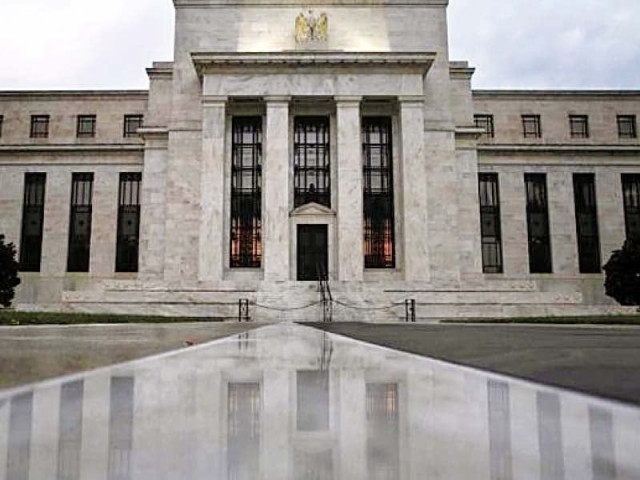KSE-100 Index: All gains wiped off, but MD insists on ‘strong fundamentals’
Naqvi says massive outflow of foreign portfolio investment part of global trend

The US Federal Reserve is expected to increase interest rates on December 15. As a result, international investors are pulling out money from Asian and other emerging markets, says Naqvi. PHOTO: FILE
Market fundamentals remain strong despite heavy selling by foreign investors in the last couple of months, said Karachi Stock Exchange (KSE) Managing Director Nadeem Naqvi.
Speaking to journalists after the formal listing of Amreli Steel at the KSE on Tuesday, Naqvi said the massive outflow of foreign portfolio investment is part of a global trend.
“The US Federal Reserve is expected to increase interest rates on December 15. As a result, international investors are pulling out money from Asian and other emerging markets,” he said.
Foreign outflows from Pakistan since the start of 2015 amount to $273.2 million. Unlike the past when foreign selling would get ‘absorbed’ by domestic buying, local investors seem unenthusiastic this time around. However, Naqvi’s observation about the outflow of foreign portfolio investment being part of a trend across emerging and frontier markets appears valid.

According to KASB Securities, equity market returns across emerging and frontier markets have been dismal. For instance, MSCI Emerging Markets Index and Frontier Markets Index have posted -14% and -16% year-to-date returns, respectively.
The KSE-100 Index has dropped 1.3% since January. In November alone, the month-on-month decline in the benchmark index clocked up at 5.85%.
Horror story: A bloody Monday
Resultantly, each of the 21 equity based fund posted a net loss in its net asset value last month. In fact, six of these funds posted a month-on-month loss that exceeded the monthly decline in the benchmark index in November, according to data compiled by the Mutual Funds Association of Pakistan (MUFAP).
The KSE-100 Index is typically the benchmark for most conventional equity funds operating in the country’s capital market. After a dismal performance in the first three months of 2015-16, the performance of equity funds saw relative improvement in October, thanks to a rebound in the share market. However, the KSE-100 Index nosedived again last month and wiped out all capital gains.
“The November performance has disrupted the nascent recovery seen in October, as incessant foreign portfolio investment outflow ($53 million in November), uncertainty associated with new regulations for brokers, and on-going corruption probe weighted on the investors’ sentiment,” according to KASB Securities.
The worst-performing sectors in November were oil and gas, as its month-on-month return clocked up at -8.9%. Chemicals (-8.7%), telecom (-8.7%), cements (-7.7%), food producers (-6.4%), banks (-6%) and automobiles (-5.3%) also posted dismal performance last month.
Investors continue to be jittery in the absence of triggers. And if history is any guide, December is not going to bring the positive sentiment back to the stock market either.
According to a study carried out by Intermarket Securities, stock returns in December tend to be in line with their performance in the preceding month. With the exception of 2007 and 2008 (when the stock market was in deep turmoil), data from 2001 to 2014 reveals that the performance of stocks in December mimics that in November, the IMS study said.
“Based on the analysis of data for 13 eligible years out of 14, we can safely assume that December has a 92.3% chance of closing in red,” it noted.
Published in The Express Tribune, December 2nd, 2015.
Like Business on Facebook, follow @TribuneBiz on Twitter to stay informed and join in the conversation.



















COMMENTS
Comments are moderated and generally will be posted if they are on-topic and not abusive.
For more information, please see our Comments FAQ